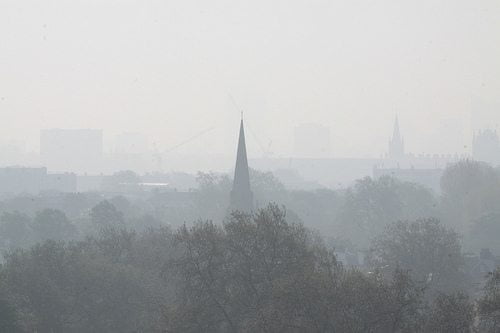

Environment
Less UK smog during July heatwave thanks to favourable airflows
Despite the longest heatwave in the UK for seven years, July’s smog was around 25% less than in the hot spells of 2003 and 2006.
However, this was not due to decreases in air pollution, but only down to a favourable airflow, the Guardian’s Pollutionwatch blog reports. In 2003 and 2006, hot polluted air was brought from continental Europe. In 2013, the airflow came from the Atlantic.
Smog is fog that is made heavier by smoke or chemical pollution. In June, Singapore’s prime minister Lee Hsien Loong was forced to tell people to stay indoors, as a hazardous smog spread across the city-state, caused by the burning of forests in nearby Indonesia.
The smog raised pollution levels to 371 on the Pollutant Standards Index. Anything above 200 is considered harmful.
During this year’s heatwave in the UK, ground level ozone levels in several areas reached harmful levels.
Although ozone is essential in the upper levels of Earth’s atmosphere, at ground level it can be harmful. Ground level ozone is not emitted directly into the air, but is created by chemical reactions. Ozone often reaches hazardous levels on sunny days in urban environments.
In such levels, Ozone can make it difficult to breathe, and has been linked to asthma attacks and lung damage.
The highest levels detected in the UK this summer were recorded as pollution accumulated in Richmond, west London, on July 17. In the 1980s, studies in the home counties found that ground-level ozone was 20% higher downwind of London.
Further reading:
‘Safe’ pollution levels can amplify lung cancer and heart failure risks
British heatwave responsible for up to 760 deaths, say researchers
Coal pollution in China ‘reduces life expectancy’


 Environment12 months ago
Environment12 months agoAre Polymer Banknotes: an Eco-Friendly Trend or a Groundswell?

 Features11 months ago
Features11 months agoEco-Friendly Cryptocurrencies: Sustainable Investment Choices

 Features12 months ago
Features12 months agoEco-Friendly Crypto Traders Must Find the Right Exchange

 Energy11 months ago
Energy11 months agoThe Growing Role of Solar Panels in Ireland’s Energy Future




























